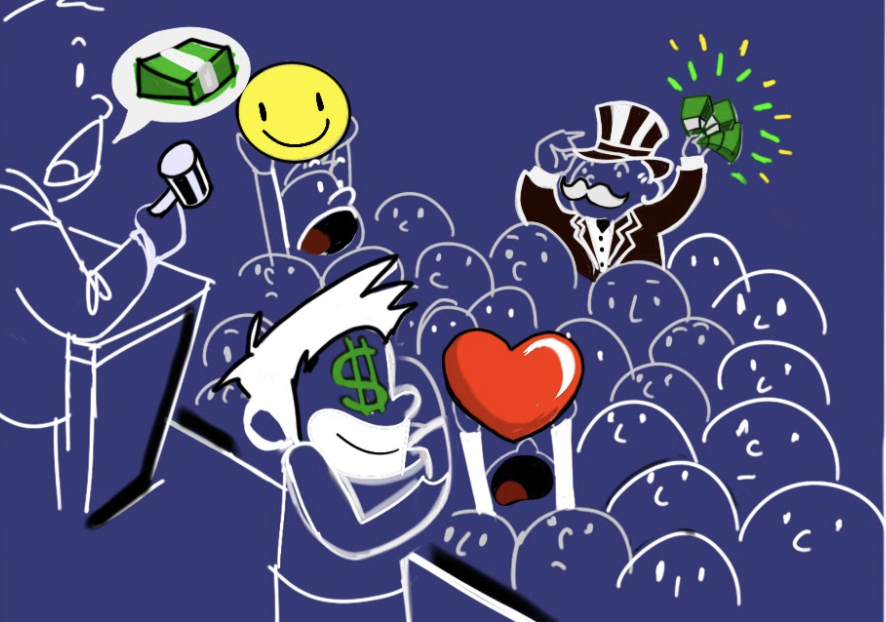The Green Lie
“What do you want to be when you grow up?” “I don’t care. I just want to be rich.”
I can’t begin to fathom how many times I’ve asked this question to countless individuals and received that same answer. My naive eyes brighten once the words leave my mouth, only to be dulled as the response reaches my ears. I can’t understand it, I can’t believe it, but at the same time, I’ve grown to expect it. Having heard that exact phrase so many times, what I really can’t understand is how I continue believing the answer I receive will be different.
In the book Sapiens, Yuval Noah Harari’s explores how one of the reasons our kind has managed to be the deadliest and most intelligent on the planet is due to our ability to believe in myths. Money is among these, as it isn’t a concrete, biological thing, but one we created– the same way we created human rights, government, and mathematical theorems. Homo sapiens are the only creatures in the world with the ability to create things that don’t exist and one of the reasons we’re able to live collectively in groups of thousands, millions and as of now, several billions, is because of our belief in them. Once our society believes in the importance of a myth, all individuals function under its doctrine. Money is a prime example: we’ve managed to convince ourselves that a mediocre piece of paper offers the keys to everything we could possibly desire. And some of us have committed ourselves to giving up our passions in order to pursue the path that will give us the greatest amount of it.
Money shouldn’t be our objective. In such a short lifespan of around 80 years, it’s tragic how many people are determined to spend eight gruesome hours a day for at least 25 years doing something they loathe because of a lie we’ve made ourselves believe. A lie that, despite ensuring the functioning of our capitalist societies, has chained us to it. The Homo sapiens, the most powerful species in the world has shackled itself to a piece of paper.
The reality is that there are, in fact, jobs that pay more than others, and this isn’t necessarily a bad thing. If everyone received the same amount of money, recognition, etc. no one would be motivated to do more. Let’s take a group of students who took a test. Those who studied managed to get 6s and 7s, whilst those who didn’t, struggled to get a 3. If all of them were to receive the same grade, one would have to take the average score and reward all pupils with approximately a 4. For those who didn’t study, it’s an obvious advantage. On the other hand, for those who studied it’s a tremendous disadvantage and strips them of their motivation to study in the future. After all, why study to get a 7 when you’ll end up getting a 4 just like everyone else?
Like grades, money is a consequence. No matter what job you do, if you do it well and better than those around you, you will make more than them. Some jobs still end up receiving higher salaries than others, but are you really willing to give up your dreams and passions for greater amounts of a piece of paper? Yes, you’ll be rich and you’ll be able to a buy the mansion you’ve always dreamed of–but the cost will be different. It’s as if you spent every day of your life in that one class you cannot stand. Is that really the life you want for yourself? Not to mention, there’s no guarantee you’ll even make as much as you imagine. Are you really willing to take that risk?
Chained to a piece of paper, our generation is expected to make more money than our ancestors could’ve ever dreamed of, but at the same time, we’re predicted to be the busiest and most stressed. Break the chain. Our lives are worth much more than simply money.

During her third and final year on The Talon, Gabi continues to believe in living life intensely. Frequently described as “crazy” she seeks adventures...











